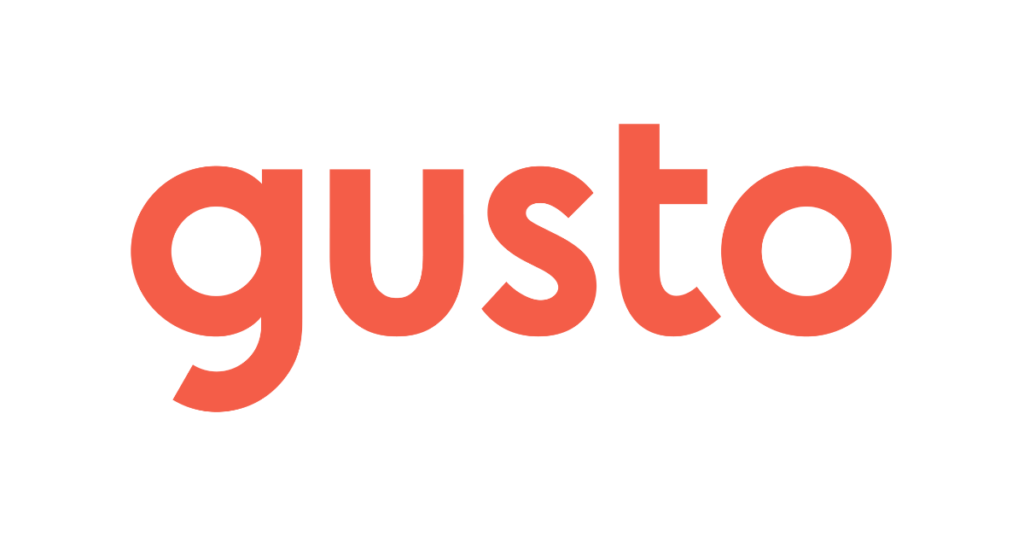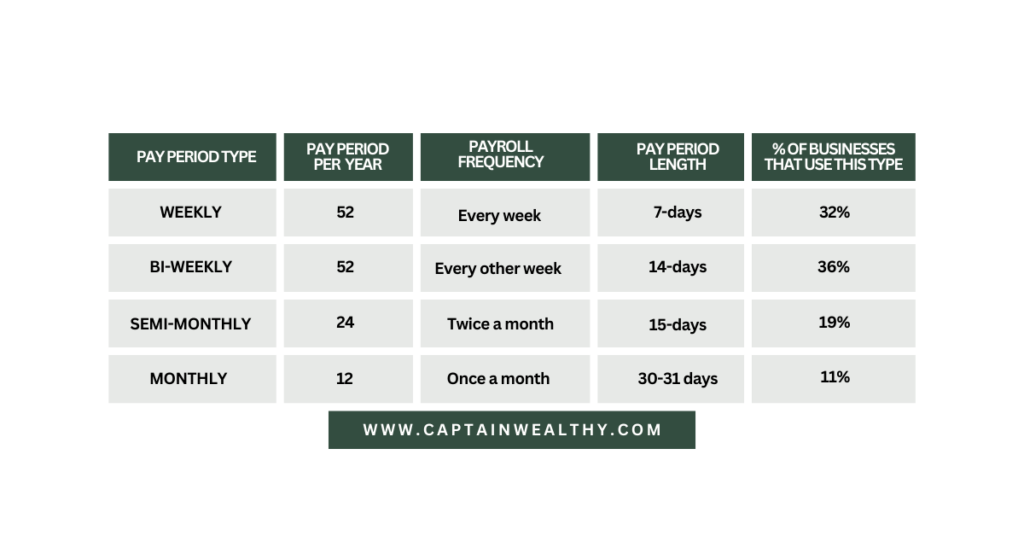Deciding when to pay your employees isn’t always straightforward. Here, we’ll discuss all you need to know about selecting a pay period. This includes understanding the laws and regulations governing employee payment. We’ll also provide useful tips for both short-term and long-term decisions regarding pay periods.
The Importance of Choosing a Pay Period
Paying employees can be stressful, especially for small businesses. Often, the payroll department rushes to meet deadlines, dealing with tight schedules. This pressure arises because monthly payroll data doesn’t always arrive on time. Nonetheless, it’s crucial to establish and adhere to a structured pay period.
Choosing a pay schedule ensures compliance with federal and state wage laws. While federal law requires businesses to pay employees on their regular payday, the frequency of paydays is determined by state laws.
Each state has its regulations on how often employees should receive payments. Some states mandate weekly or bi-weekly payments. Businesses seeking longer pay periods need approval from the state’s labor commission.
Employees have the right to file claims for missed or late payments, which could result in severe consequences such as losing your business license, facing fines, penalties, or lawsuits. Adhering to your state’s pay period regulations protects your business from unnecessary legal issues.

Moreover, money is a significant motivator for employees. Prospective employees prioritize wages, benefits, and pay frequency when considering job offers. Having an appealing pay period can help attract top talent. For instance, most organizations run payroll biweekly. Opting for a monthly schedule may deter potential employees, leading them to choose your competitors.
Lastly, a reasonable pay schedule ensures timely payments for employees. Choosing a pay period that aligns with your organization’s cash flow increases the likelihood of retaining top performers who rely on consistent paychecks.
Streamlining Your Payroll Process
Investing in payroll software can streamline your payroll process effectively. Gusto, an online payroll service, is highly recommended. It offers unlimited payroll runs, meaning you can process payroll as frequently as needed without extra charges.

Additionally, Gusto handles tax form filings every time you process payroll, unlike its competitors who charge an additional fee for this service. With Gusto, you gain access to six different pay periods that are easy to set up. The platform also offers various HR features, including an employee self-service portal, benefits administration, and onboarding tools.
Starting at $40 per month plus $6 per month per employee with its Simple plan, Gusto offers affordability and flexibility for businesses of all sizes.
Read my full Gusto review here!
Exploring Different Pay Periods
If you’re deliberating on the ideal pay period for your business, it’s essential to consider all options available.

Weekly Pay Periods:
- Employees are paid every week, usually on Fridays, following a 40-hour workweek.
- Weekly pay periods involve 52 payroll cycles in a year, with an additional cycle in leap years.
- Despite the advantages, weekly pay periods can be costly and complex, often extending into the next month.
Bi-Weekly Pay Periods:
- Employees receive payments every other week, resulting in 26 paychecks in a year.
- Bi-weekly pay periods offer regular paychecks and sufficient time for payroll processing.
- However, they can be expensive and may complicate reporting and calculations.
Semi-Monthly Pay Periods:
- Employees are paid on the same date twice a month, ensuring 24 paychecks in a year.
- While offering regular paychecks, semi-monthly pay periods may pose scheduling challenges due to varying pay period end dates.
Monthly Pay Periods:
- Employees receive payments once a month, resulting in 12 paychecks annually.
- Monthly pay periods are cost-effective and simplify payroll processing but may not align with employee preferences.

Strategies for Effective Pay Period Selection
Selecting the right pay period requires careful consideration and planning. Here are some strategies to guide you:
- Familiarize Yourself With State Employment Laws: Refer to your state’s department of labor for details on pay regulations. Each state has unique payday frequency laws that must be followed.
- Consult Your Employees: Seek input from your employees to ensure the chosen pay period benefits both the employer and the employee.
- Consider Your Payment Method: Choose a pay period that aligns with your preferred payment method, whether it’s weekly, bi-weekly, semi-monthly, or monthly.
- Evaluate Your Cash Flow: Match your pay period to your cash flow to ensure timely payments to employees.
- Be Prepared to Change Pay Periods: In certain situations, changing pay periods may be necessary. Ensure compliance with state laws and inform employees in advance of any changes.
By following these strategies, you can select the most effective pay period for your business, ensuring timely and accurate payments to your employees.

Wrapping Up
Once you’ve chosen the ideal pay period, the next step is setting deadlines for crucial payroll tasks. Establish deadlines for collecting timesheets, running payroll, and distributing payments to employees.
With careful planning and consideration, you can streamline your payroll process and ensure timely payments for your employees.





